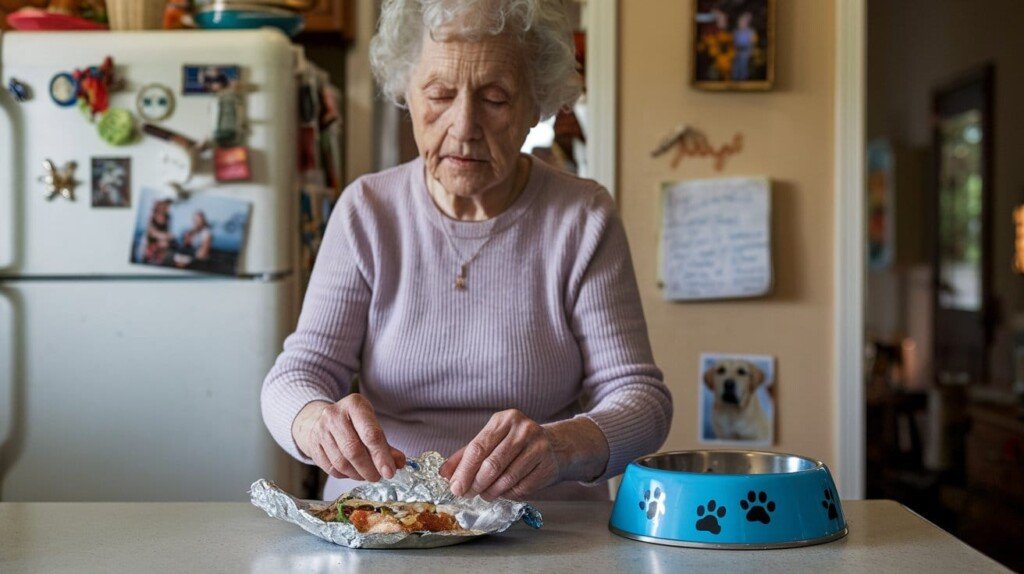Some people move on. Others find ways to bring the ones they lost to dinner.
The empty chair sits there, pristine napkin folded neatly beside untouched silverware. A bowl—his favorite, blue with little paw prints dancing around the rim—waits for food that will never be consumed. For 327 days, Margaret hasn’t missed this ritual, setting a place at her dining table for Cooper, her chocolate Labrador who passed last spring.
Neighbors whispered their concerns. Family members suggested therapy. Friends stopped inviting her to dinner parties, afraid her grief had consumed her. They didn’t understand that these moments weren’t about denial—they were conversations.
In the silence between the clink of her fork and the gentle hum of the refrigerator, Margaret found space to remember. The way Cooper would rest his chin on her knee during difficult days. How his tail thumped against the floor when she arrived home. The particular head tilt that appeared whenever she mentioned walks or treats.

Every evening at precisely 6:30, she would prepare two plates. One for herself, modest and practical. The other—Cooper’s plate—became something different. It transformed into a canvas where she painted memories through food he once loved: turkey scraps, sweet potato bits, the occasional piece of cheese he wasn’t supposed to have but always received anyway.
What her worried friends couldn’t see was how the empty chair gradually shifted from a monument to grief into something revolutionary. The plate that began as a symbol of absence slowly became a vessel for giving.
Three months into her ritual, Margaret started wrapping Cooper’s untouched meals and delivering them to her elderly neighbor who struggled to cook. Six months in, Cooper’s place setting expanded to include donations for the local animal shelter—toys, blankets, and food stacked neatly beside his empty bowl.
Want to know what scripture says about pets in heaven? Get our FREE Scripture Checklist!
Today, Cooper’s chair hosts a revolving collection of community needs: children’s books for the literacy program, canned goods for food drives, hand-knitted scarves for the homeless shelter. What began as one woman’s unusual expression of grief blossomed into a neighborhood movement of remembrance through giving.
Margaret still sets a place at the table for her dog. But now, that empty space fills countless others.
The most beautiful tributes don’t freeze time—they transform it.
SHARE now with your friends!


